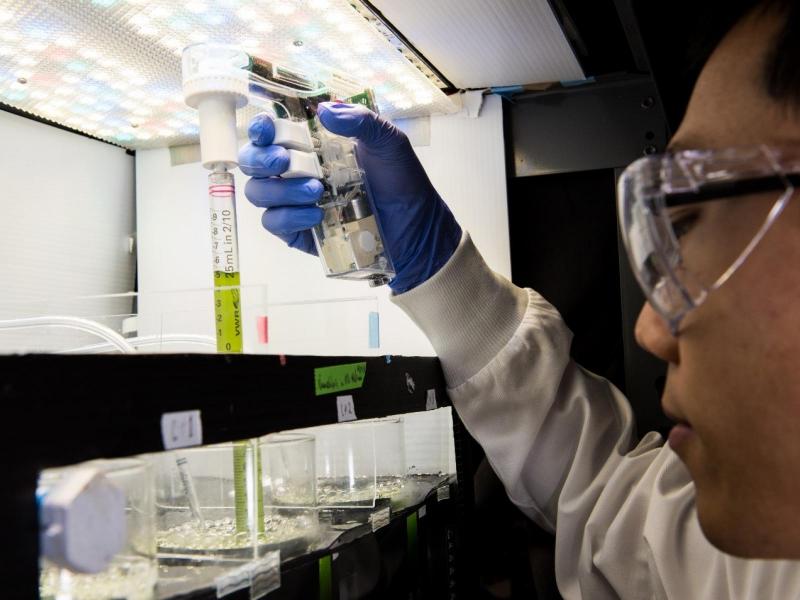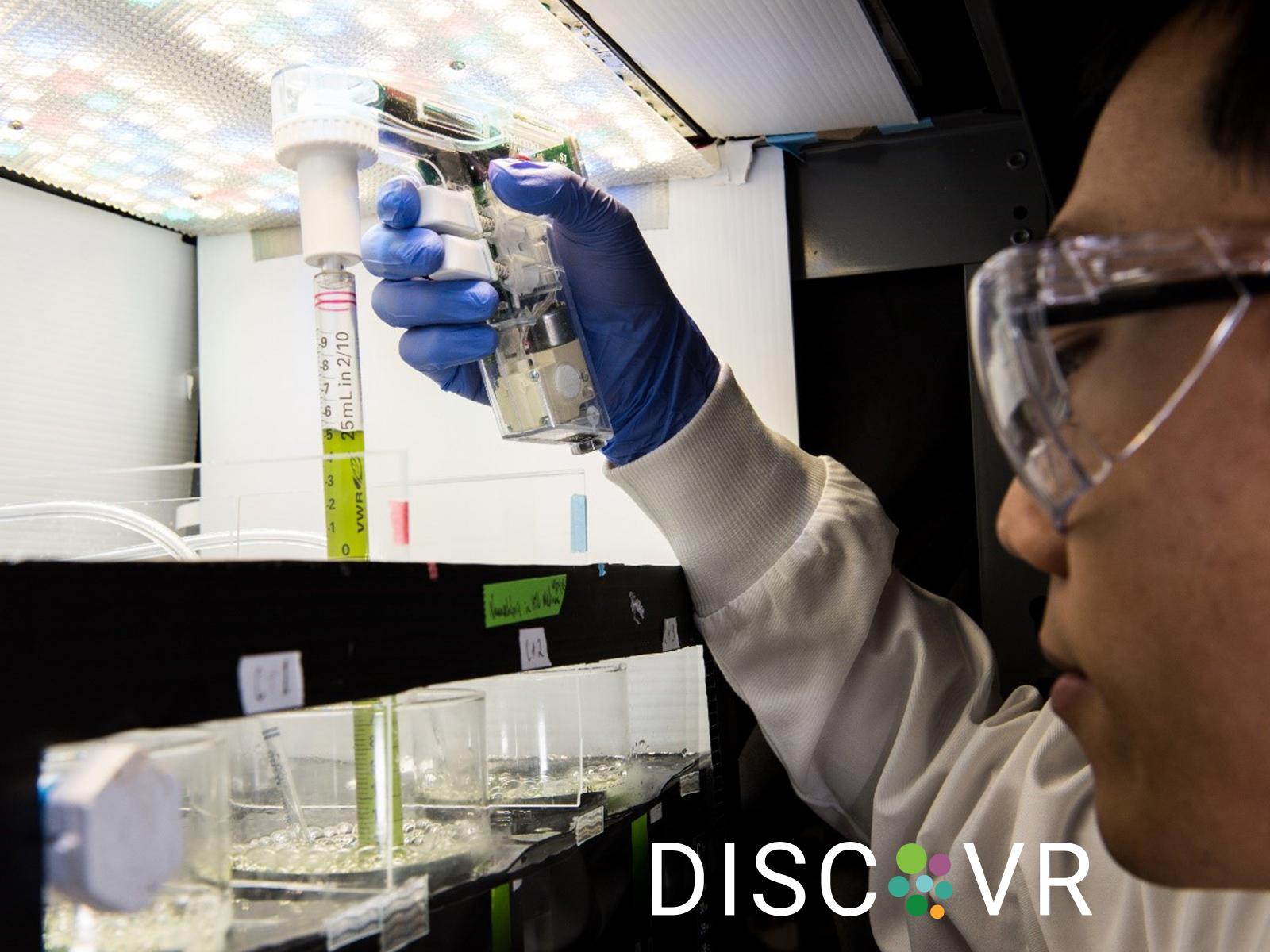
DISCOVR – A New Era for Algae
A multi-laboratory collaboration to evaluate algae strains using a multi-phased process

The DISCOVR Consortium is led by PNNL and is an effort to reveal the potential of algae for biofuels.
A multi-laboratory collaboration to evaluate algae strains using a multi-phased process

The DISCOVR Consortium is led by PNNL and is an effort to reveal the potential of algae for biofuels.
Scientists are unlocking the vast potential algae holds for biofuels that, one day, could replace gasoline, diesel, and jet fuels in cars, trucks, trains, and airplanes.
Cultivating a supply of algae for biofuel production, however, poses a daunting challenge to the energy industry. Although more than 100,000 algae strains exist, scientists are trying to determine which grow best in certain climates, and in freshwater, saltwater, or wastewater environments.
The U.S. Department of Energy’s (DOE) Development of Integrated Screening, Cultivar Optimization, and Verification Research—or DISCOVR—Consortium is addressing the challenge by parameterizing a variety of algal strains that can be converted to clean, sustainable biofuels and bioproducts. The effort, supported by DOE’s Bioenergy Technologies Office, also considers productivity goals for open growing ponds that, if replicated and scaled-up, could help DOE meet targets for low-cost algal biofuels.
DISCOVR is led by PNNL and includes Los Alamos National Laboratory, National Renewable Energy Laboratory, Sandia National Laboratories, and the Arizona Center for Algae Technology and Innovation (AzCATI)—all who bring expertise and unique capabilities to the collaboration.

With DISCOVR, researchers evaluate algal strains progressively through a multi-phased pipeline, culminating in an outdoor testbed facility at AzCATI. As part of this pipeline, PNNL’s Laboratory Environmental Algae Pond Simulator—or LEAPS—consists of a series of photobioreactors that determine biomass productivity under nitrogen-replete and -deplete culture conditions. These conditions simulate the outdoor ponds in Mesa, Arizona, where AzCATI is located. Evaluation using the LEAPS constitutes the second step in the pipeline; the initial screening in smaller flask cultures, conducted by PNNL and Los Alamos National Laboratory partners, identifies the most promising strains for subsequent testing in the LEAPS.
Following the LEAPS testing phase, researchers at Sandia evaluate the most successful strains for culture stability. Down-selected strains move to the PNNL Algae Testbed in Arizona, where their biomass productivity is determined under realistic outdoor pond conditions and their biomass composition is determined by the National Renewable Energy Laboratory. If deemed successful, the strains proceed to the final evaluation stage at the AzCATI outdoor testbed facility.